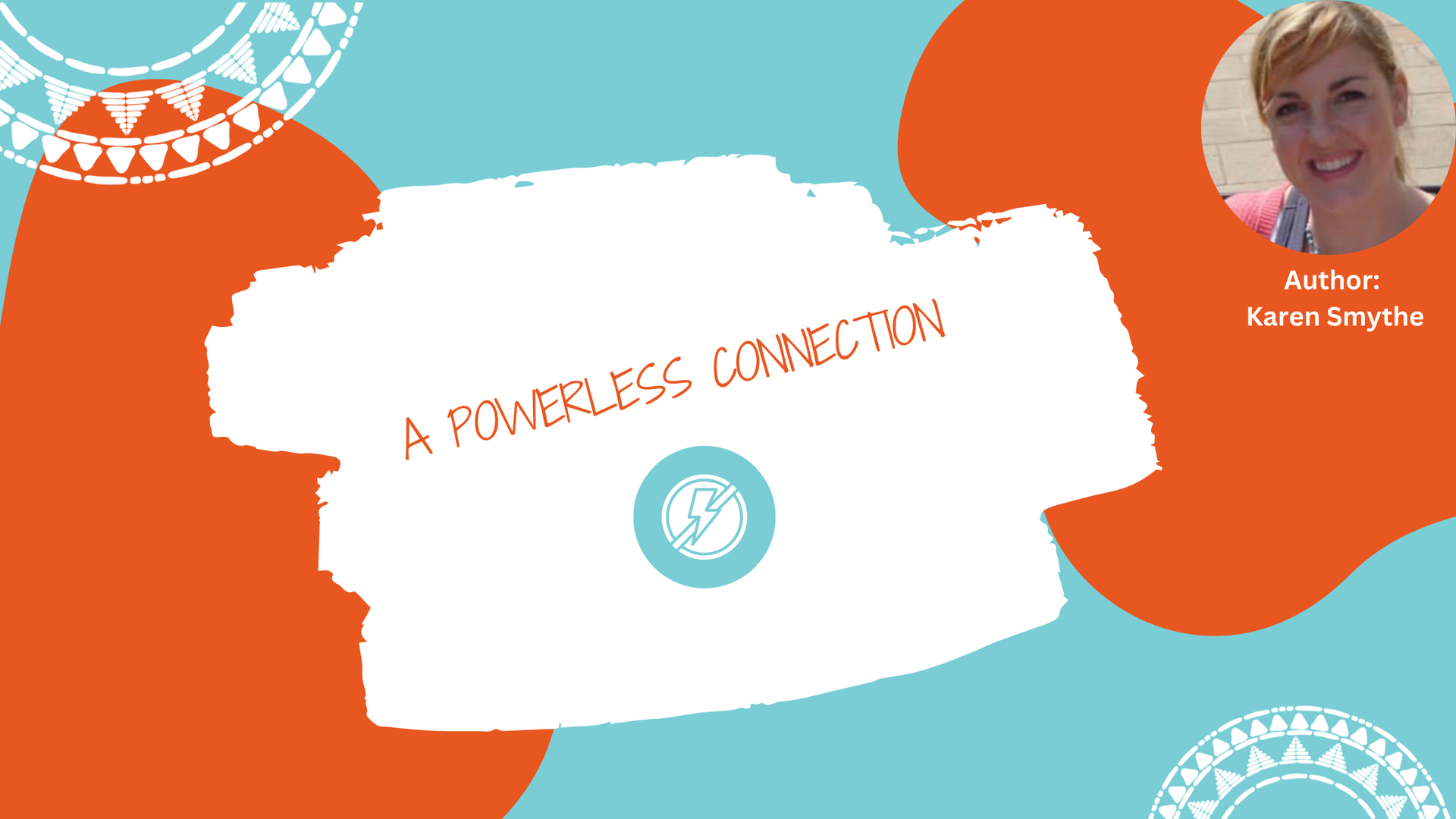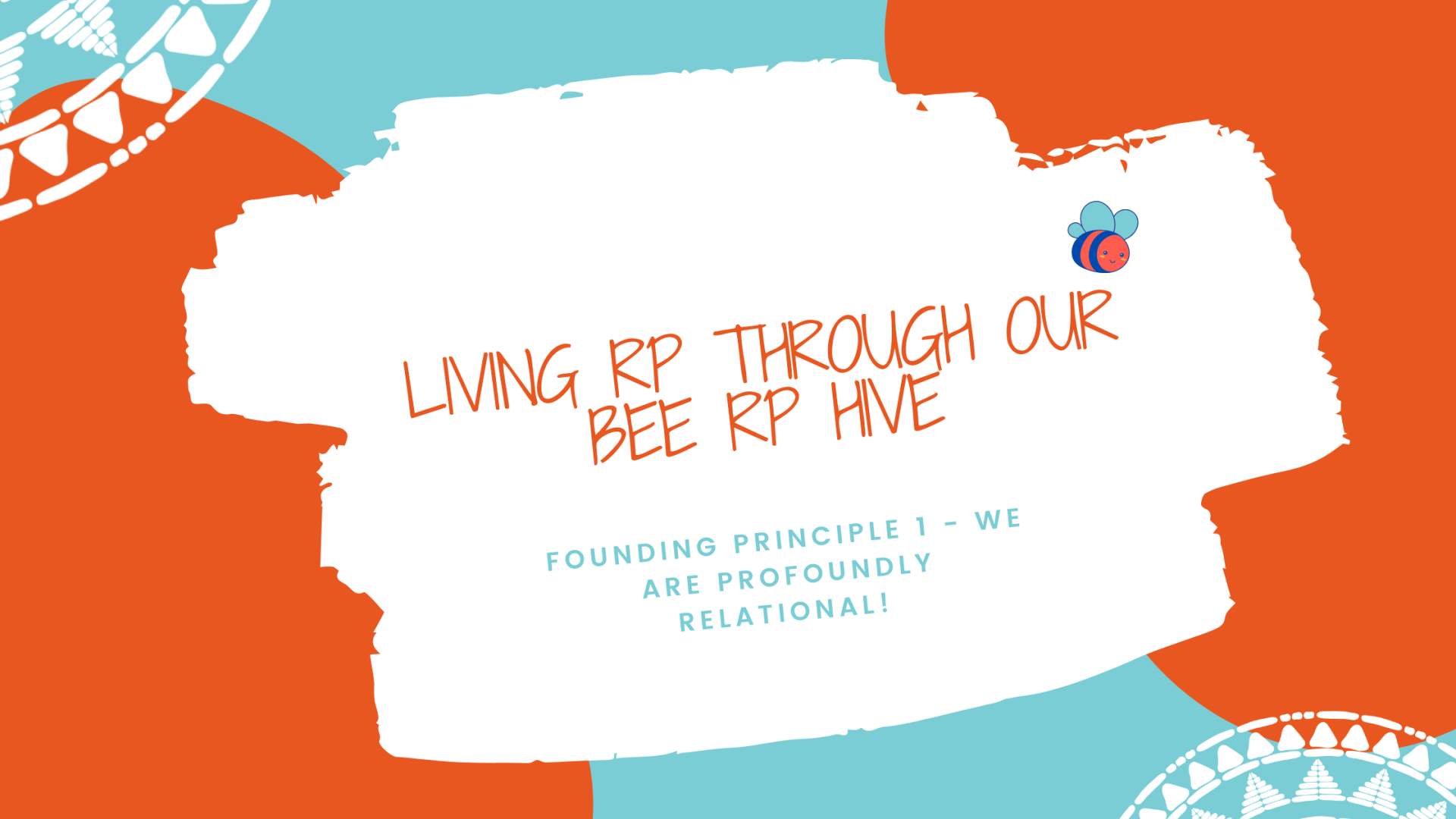
One of the guiding principles of the restorative philosophy is that we are profoundly relational. This is of course as true for us as educators as it is for our students! It is why I believe so much in the capacity of Connect RP’s Bee RP Hive (Guided Professional Learning Community) to foster the connection we all crave and need, now more than ever. It de-privatises what we do in our classrooms, taps into our collective wisdom as a staff, and explicitly honours community and collaboration!
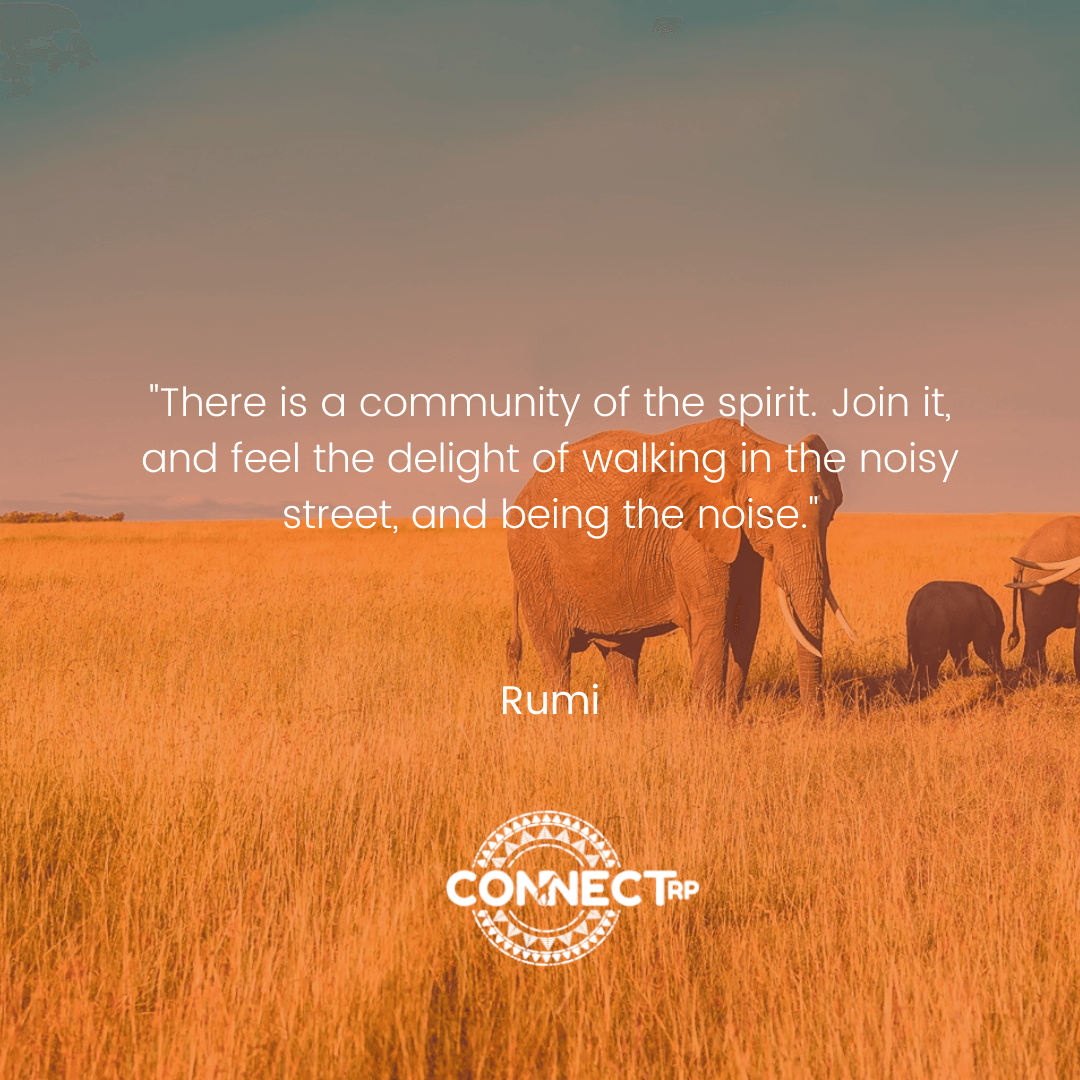
In my opinion and experience of implementing RP in schools, the Bee RP Hive has the biggest impact on navigating restorative cultural change than anything else I promote in the work that I get to do around co-creating a relational school community - Implementing Restorative Practice in, through and around community! The Bee RP Hive has its roots in the Professional Learning Community (PLC) that I was lucky enough to start up in 2011 in my lovely school as part of my action research project. The intention was to implement and maximise the use of RP in my school.
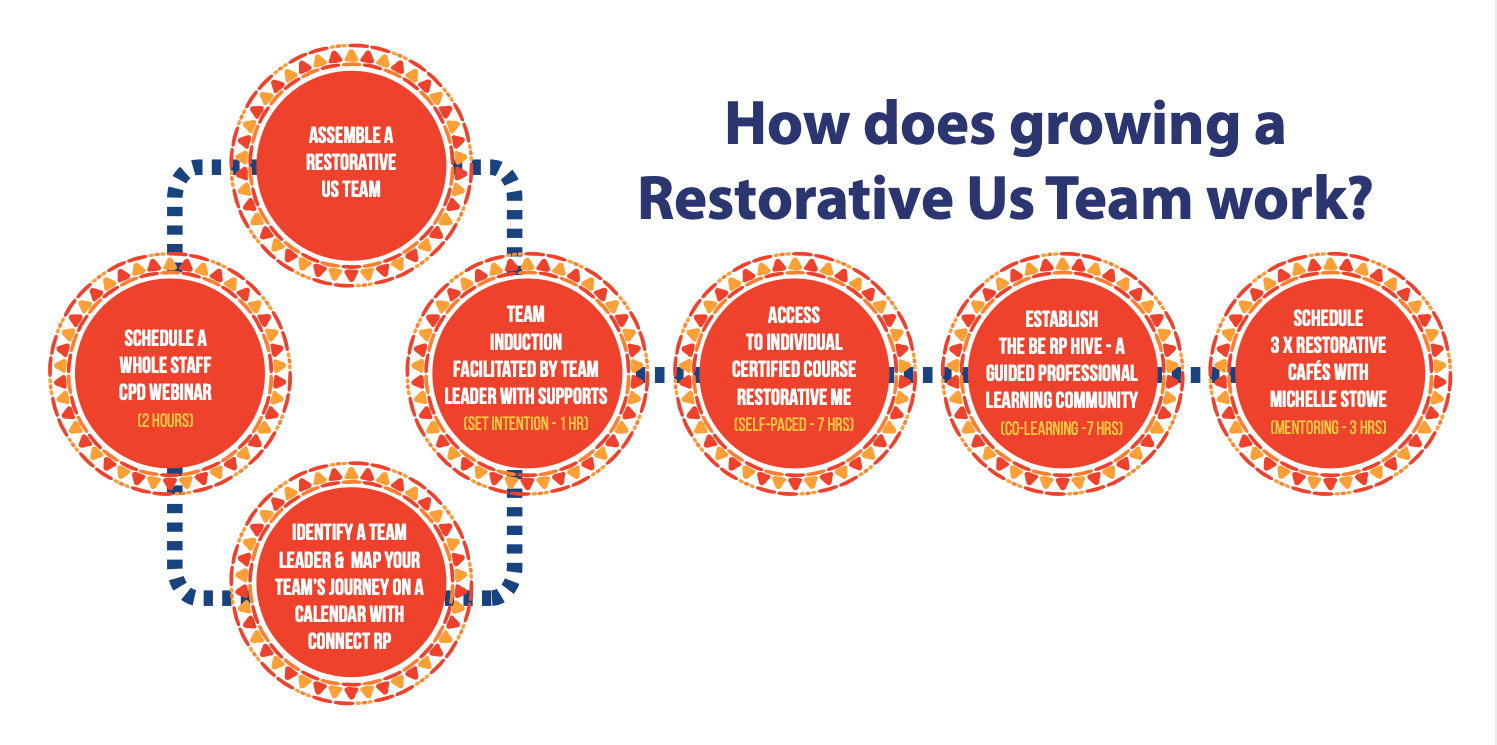
Eight teachers initially agreed to join our weekly meetings. The intention was for us to plan, implement and evaluate the impact of RP in our classes. As a trainer at the time, I would teach/share an aspect of RP with this group which I now do via the video lessons of the self-paced course called
Restorative Me in Pillar 1 below. I would then invite them to implement a task relating to this knowledge with their Case X, a class or students in need to improved relationships which is now articulated via our
Restorative Me Quests. Teachers would then journal on this process and the impact on their own self, their Case X, and the class community on a weekly basis which is now represented in
Restorative Me Connect & Reflect invitations. We would then share back with the group at the next Bee RP Hive (guided PLC) meeting encouraging one another by sharing our success, and supporting one another by addressing the live needs of any problems that emerged. This is the heart of the Bee RP Hive (guided PLC)! It is the second, and in my opinion, most important pillar of growing a restorative team through the Restorative Us Plus Package and essential for sustainable restorative leadership and growth.
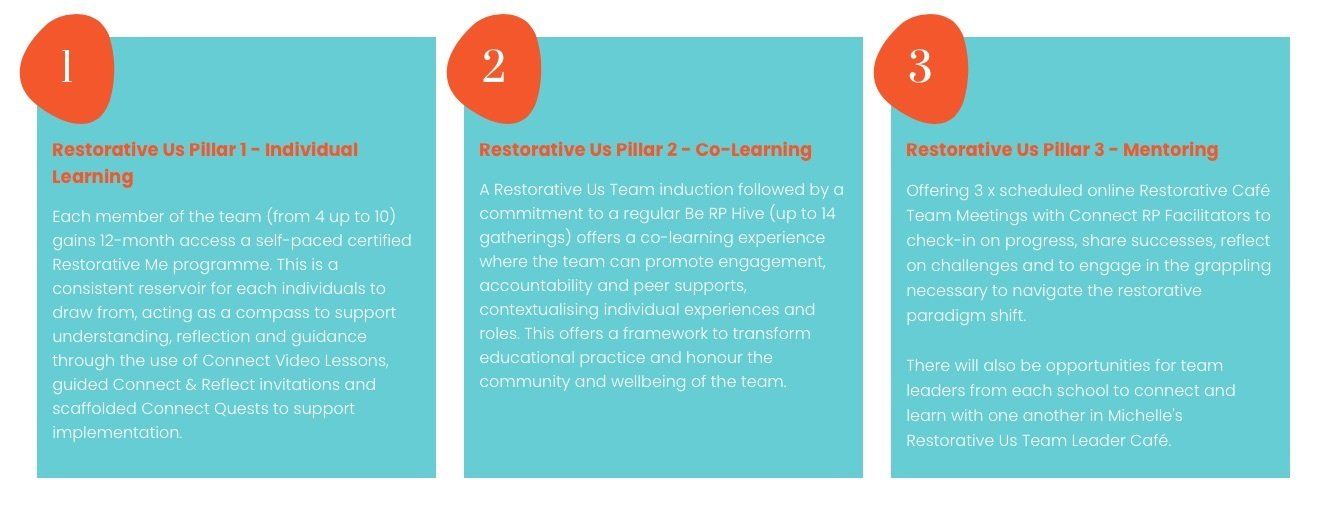
The definition of a PLC is a group of people who meet in an organised, structured space that is agenda and solution-focused. The community gathering promotes supportive relationships and develops shared norms and values. Connect RP created and promotes the FRIENDS (primary) & RESPECT (post primary) acronyms to build a literacy around the restorative values. As in any restorative process, using these as a compass to establish norms and protocols, a sharing process is recommended.
The focus on ‘professional’ in our Be RP Hive is towards the acquisition of knowledge and skills as represented in the 14 Restorative Me Video Lessons – the heart of this is cultivating relational thinking! The Be RP Hive (guided PLC) is a wonderful way to build community, promote reflection and to share our strengths and skills. There are two important factors to sustaining a PLC. Firstly, physical conditions such as time, space and
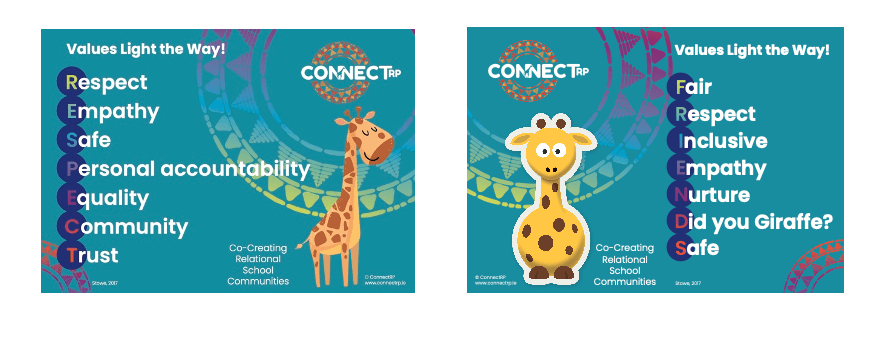
such as time, space and funding; and secondly, human conditions, including a culture of trust and supportive leadership. The fact that our PLC ran weekly for three years is a huge testament to its success. There was a core group of committed teachers that attended our weekly Monday lunchtime PLCs but post research, it grew into a space that everyone was very welcome to attend and so the composition of the group changed quite regularly. Some yummy bread and tea were essential ingredients to foster the warm, supportive atmosphere and we usually began by sharing the highlights of our weekend which ensured that we are modelling the restorative intention of proactively building positive relationships among ourselves – offering a relational experience.
After sharing our highlights in the PLC, we would then reflect on the progress of our previously determined targets which are now represented in the Lesson Quest in each lesson of Restorative Me and/or share anything that we are currently seeking advice about. Our solution-focused lens promoted positive energy that ensured we left with a number of great ideas, tapping into our collective wisdom. In the outset we only had group targets but as our Bee RP Hive evolved, each teacher often had individual targets/goals that they planned to implement with their Case X. This did not offer any magic wands or unicorns but it had a big impact on our own stress levels and self-efficacy to meet the challenges we were still facing, but now in community and with the support of our growing conflict literacy skills. My research found that we found the meetings cathartic and supportive.

Peer support was a big part of what we cultivated, I remember one month we set up an ARK (Acts of Random Kindness) initiative where we took a name from a jar to target our kindness intentions. This generated some lovely energy, bonding and undoubtedly some needed pick me ups during the week! I highly recommend this, it is such a simple way to positively impact one another’s daily life and lift the spirit. It also generates that feel good ‘helpers high’ for the giver of the act. Our world could do with a little more of this energy, all it takes is a good intention and a few names in a jar!
When I began this in 2011 I had limited formal knowledge of RP or indeed no awareness of the trajectory of my own journey but I had in my heart the intention to be part of the change I wanted to see. If we wait until we are bulletproof and perfect at things, they may never begin. I wholeheartedly believe in Connect RP’s Bee RP Hive to support schools (available as a Restorative Us Plus package and a whole school Connect RP Site licence), I’ve lived this personally but we didn’t have such formal supports available to us in 2011 and we did great things together as a community! You can sign up to either of the above or indeed simply use our Bee RP Hive Guide attached to support your organic journey – what is essential is to just show up together with the shared intention of co-learning, co-reflecting and co-mentoring – an open community and a warm cuppa helps :-)!

